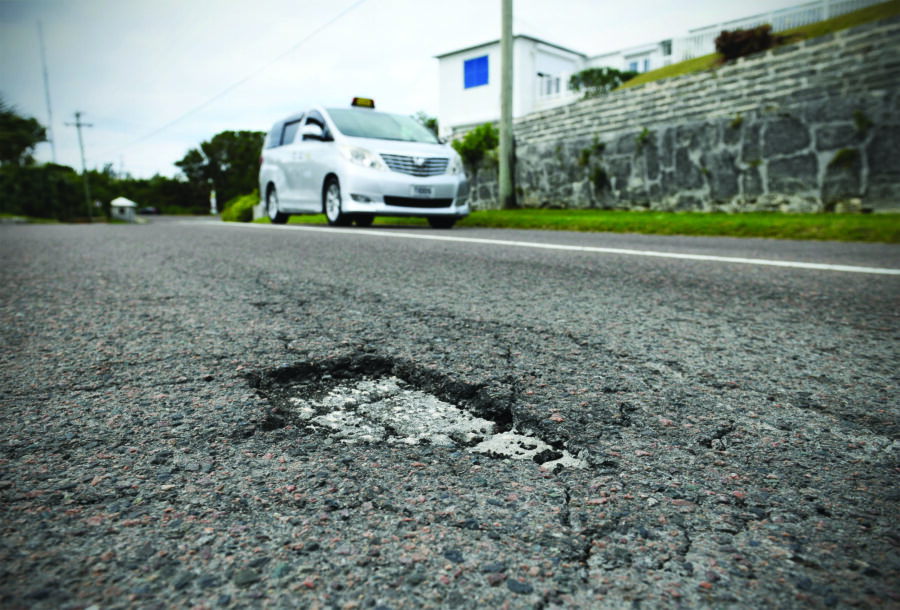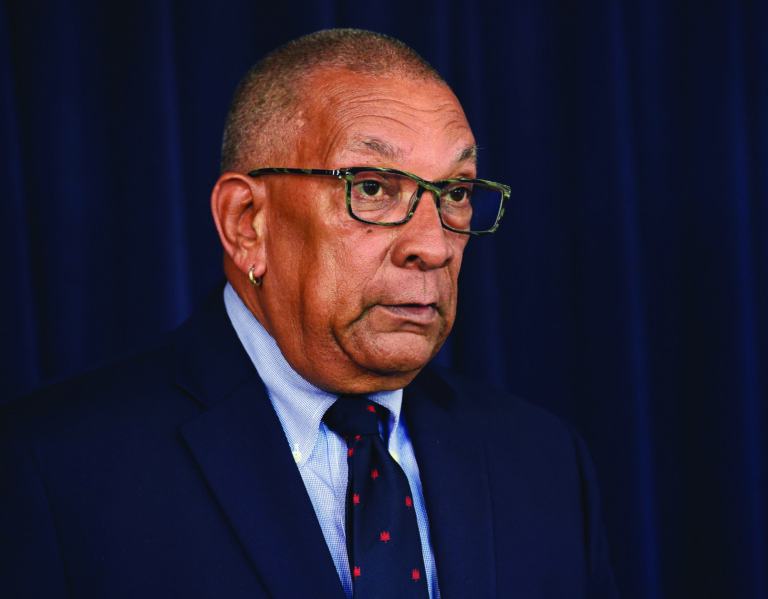How often do you hear politicians apologise? While I haven’t done a detailed analysis on this subject, I will take an educated guess and boldly suggest the answer is: Not very often.
In December last year, however, the Minister for Public Works, Lieutenant-Colonel David Burch, bucked this trend: “Let me begin by apologising to the people of Bermuda and those who live here and use our roads, for the state they are in,” he told the House of Assembly, adding: “They are in a significant state of disrepair and few of the plans to address this situation have been successful.”
No one who has tried to navigate Bermuda’s roads in recent months would argue with him. Dodging ever larger and deeper potholes is becoming a national sport, and those who aren’t practised enough plough right in.
In phone calls to some of the island’s garages, auto mechanics reported a booming business in vehicle suspension repairs, with one saying that suspension work is up by 50 per cent since the asphalt plant stopped working last summer.

Furthermore, in a recent Royal Gazette online poll asking the public for their wish list of new year’s resolutions from the Government, “fix the roads” came out on top by far with 46 per cent of the votes.
To put this in perspective, “pay down the national debt” came in second with 27 per cent and “balance the budget” fourth attracted a mere 11 per cent.
But an apology and recognition that there is an urgent problem that needs to be fixed is appreciated.
So does this mean there is a smoother road ahead? The answer is: Eventually, or to quote Colonel Burch: “The journey to smoother roads is a marathon, not a sprint.”
To compound the problem of “biblical” rain, as he called it, the government’s asphalt plant and asphalt miller were, at the time of writing, still out of service, awaiting repairs. Then, in February, it was announced that East End Asphalt, which had been providing back-up services to the Government’s plant, was also experiencing difficulties. In the meantime, the rain continued and the potholes were seemingly becoming pot-ditches.
While temporary measures are being implemented as fast as is feasible, we are told that a longer-term, more permanent fix to our problem is on the horizon. A new asphalt plant is expected to be operational before the end of the summer, and the road paving budget has more than doubled to $5 million.
Furthermore, Astec Industries, who provided the current asphalt plant 20 years ago and with whom the government is working on the new one, offered places for several Bermudian workers to train at their headquarters in Tennessee. This is a “train the trainer” scheme, which will then provide for further training locally.
“Additional capital funds” to cover this new plant as well as the training and development for highways personnel was also confirmed in the 2024 budget.
In the meantime, with clouds often come silver linings. My home backs onto a busy ‘cut-through’ road and when we first moved in, several years ago, that road was a mess. Uneven, potholes, the works.
Motorists had to drive slowly and my children could ride happily on their bikes or scooters. Then it got repaved. Since then, the motorists have sped up, and bikers regularly use it to practise their poppa-wheelies. I’m now terrified of my kids going anywhere near that road. The point of my story? Even potholes have a silver lining.

